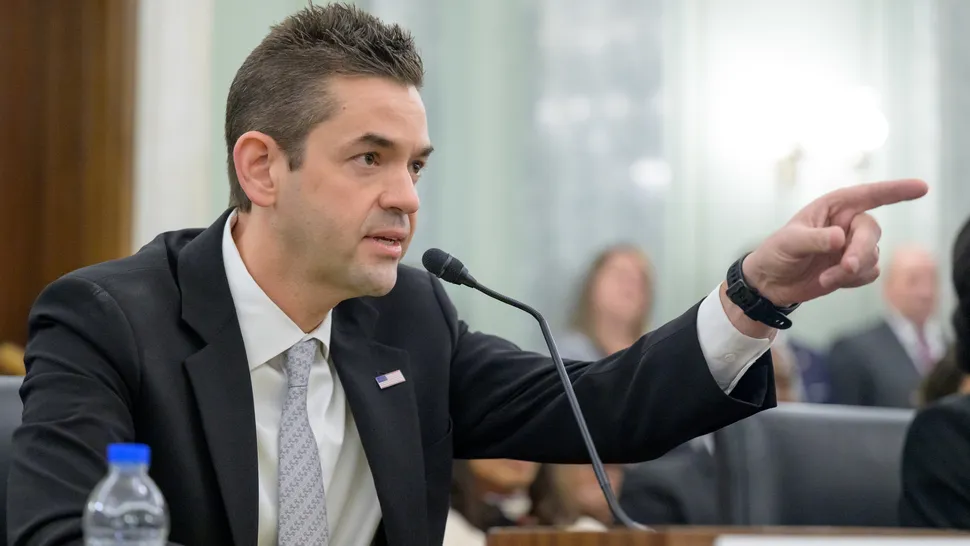Senators Scrutinize Trump’s NASA Pick Jared Isaacman Over Close Ties to Elon Musk

Washington, D.C. – April 26, 2025
Jared Isaacman, President Donald Trump’s nominee to lead NASA, faced intense questioning from senators during a recent confirmation hearing, with lawmakers from both parties raising concerns about his deep financial and personal ties to SpaceX CEO Elon Musk. The Senate Committee on Commerce, Science, and Transportation grilled the billionaire entrepreneur on potential conflicts of interest, given SpaceX’s significant contracts with NASA and Isaacman’s history as a key customer of the company.
Isaacman, the 42-year-old CEO of Shift4 Payments and a private astronaut who has flown on two SpaceX missions, was nominated by Trump in December 2024 to helm the space agency. His nomination has sparked excitement in some quarters for his bold vision and spaceflight experience, but it has also drawn skepticism due to his lack of government experience and his close relationship with Musk, a prominent Trump ally and major donor to his 2024 campaign.
Concerns Over Conflicts of Interest
During the April 9 hearing, Democratic Senator Ed Markey of Massachusetts repeatedly pressed Isaacman on whether Musk was present at Mar-a-Lago when Trump offered him the NASA administrator role. Isaacman sidestepped the question, stating only that his meeting was with the president-elect, prompting Markey to remark, “I’m assuming you don’t want to answer directly because Elon Musk was in the room.”
Markey cited Isaacman’s “deep personal and financial ties” to Musk, noting that Isaacman’s company, Shift4 Payments, holds a $27.5 million stake in SpaceX and has a five-year partnership with Starlink, SpaceX’s satellite internet service. Additionally, Isaacman has funded and commanded two high-profile SpaceX missions—Inspiration4 in 2021 and Polaris Dawn in 2024, during which he became the first private citizen to perform a spacewalk.
“Given SpaceX’s significant interests before NASA, you can understand why the public would be concerned about conflicts of interest,” Markey said, highlighting SpaceX’s $15 billion in NASA contracts, including those for astronaut transport and a lunar lander for the Artemis program.
Isaacman sought to alleviate concerns, asserting, “I have not discussed my plans for NASA with Mr. Musk,” and emphasizing his loyalty to the agency and the nation. He added that, if confirmed, he would resign as CEO of Shift4 Payments, though he would retain his financial interest in the company.
Moon vs. Mars: A Strategic Divide
Beyond conflicts of interest, senators questioned Isaacman’s vision for NASA, particularly regarding the agency’s Artemis program, which aims to return astronauts to the moon by 2027, and Trump’s and Musk’s vocal push for Mars exploration. Republican Senator Ted Cruz of Texas, whose state hosts NASA’s Johnson Space Center, stressed the importance of lunar exploration in the face of competition from China, which plans to land astronauts on the moon by 2030. “I am hard pressed to think of a more catastrophic mistake than saying to Communist China, ‘the moon is yours,’” Cruz said.
Isaacman attempted to bridge the divide, insisting that NASA could pursue both lunar and Martian missions simultaneously. “We don’t have to make a binary decision of Moon versus Mars,” he said, arguing that parallel efforts were feasible. However, his past criticism of NASA’s Space Launch System (SLS), a key component of Artemis, raised eyebrows. In a 2024 post on X, Isaacman called the SLS “outrageously expensive” and suggested it was vulnerable to cancellation, a stance that aligns with Musk’s preference for SpaceX’s Starship rocket.
An Unconventional Nominee
Isaacman’s nomination marks a departure from tradition, as recent NASA administrators, such as current head Bill Nelson and Trump’s first-term pick Jim Bridenstine, were seasoned politicians with deep ties to Congress. Isaacman, by contrast, is an outsider whose space credentials stem from his collaboration with SpaceX. Supporters, including a coalition of 85 space companies and 28 former astronauts, argue that his entrepreneurial background and firsthand spaceflight experience make him uniquely qualified to modernize NASA.
Critics, however, warn that his inexperience in navigating Washington’s political landscape and his financial entanglements with SpaceX could complicate his leadership of an agency with an $25 billion budget and 18,000 employees. Some also expressed concern about the potential impact on NASA’s science programs, including climate research, given Trump’s proposed budget cuts and Musk’s focus on Mars over Earth-based science.
What’s Next?
The Senate committee is not expected to vote on Isaacman’s confirmation until at least April 28, leaving time for further scrutiny. While Isaacman has garnered support for his passion and vision, his ties to Musk and SpaceX remain a sticking point for lawmakers wary of undue influence over NASA’s priorities and contracts.
“I absolutely want to be clear, my loyalty is to this nation, the space agency, and their world-changing mission,” Isaacman told Senator Gary Peters (D-Mich.) during the hearing, addressing concerns about Musk’s potential sway.
As the confirmation process unfolds, Isaacman’s ability to convince senators of his impartiality and strategic vision will be critical to securing his place as NASA’s next leader. For now, the debate over his nomination underscores the complex interplay of commercial interests, national priorities, and political alliances shaping the future of American space exploration.